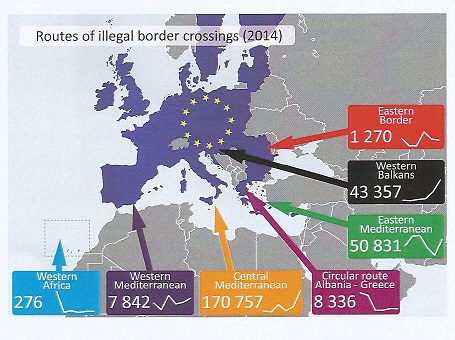By Sami Zaptia.
Tunis, 28 June 2014:
The murderous terror strike against innocent locals and holidaymakers in the Sousse resort on Friday was . . .[restrict]an attempted blow at the emergence of the new post-conflict state of Tunisia.
It is a strike against the Tunisian people who voted in a democratic process and chose the ballot box over the use of force or a return to a dictatorship.
It was aimed at destabilizing a country – a post-colonial state attempting to take positive progressive steps in its post-conflict reconstruction. The strike by the terrorists was an attempt to hit Tunisia’s tourism sector so hard that it would crash leading to decreased foreign currency earnings, increased unemployment, social tensions and possibly political tensions and collapse.
Terrorists and their organizations know that they cannot operate in a strong stable country where there is security and political, social and economic harmony. They best operate in environments of insecurity and economic vacuums where there is no monopoly on the use of force enjoyed by the strong central state.
They also prefer an economy with high rates of youth unemployment with a pool of disgruntled jobless youth who have no prospects or future to look forward to. A disgruntled youth without a cause who are easily swayed and led down a false path of dark heroism and misplaced victory.
The terrorists want to scare foreign businesses, investors and tourists away from Tunisia and send the state on a vicious downward economic spiral that would lead to a stagnant failed state providing the ideal fertile ground for recruitment into their organizations.
What happens in Tunisia is also vitally important for its Arab Spring neighbour Libya. Tunisia is deemed the avant guarde in the Arab Spring. It leads and its Arab Spring neighbour follows. Unlike Egypt, Tunisia stepped back from becoming an Islamic Brotherhood-run country. It flirted with political Islam briefly, but its people voted-in a secular led leadership.
More importantly for Libya, its political Islam leadership chose a peaceful route and chose to put Tunisia first, above partisan party and ideological politics. These are important lessons that can be learnt by the minority, but highly armed, political Islam movement in Libya who have until now, despite a resounding rejection by the Libyan electorate, chose power, ideology and narrow self-interest party politics above the nation.
The message from the events in Tunisia for Libya and beyond is that whilst a strong state can never guard against terrorism 100 percent, a strong state is the minimum requirement that is needed to have any chance of keeping terrorist activity under control.
If Libya is realistic about countering the newly established IS organization in the country, it needs a strong unified state as a prerequisite. A state that enjoys some semblance of monopoly control over the use of arms. A disunited state with a multiplicity of security and militia chasms and layers and a weakened central security authority will not succeed in countering terrorism or the new IS threat.
If terrorism is not checked and there is continued instability and insecurity in Libya, there will be no hope of achieving the dreams and aims of Libya’s 17 February Revolution – a revolution that many young Libyans sacrificed their lives for.
If there is no security and stability in Libya there will be no hope of achieving sustainable progressive development. There will be no hope of diversifying Libya’s economy away from hydrocarbons if the country becomes an IS battle ground.
There will be no hope for Libyans of creating productive value-added jobs for the hundreds of thousands of the unemployed youth. These would be the same unemployed youth that had sacrificed their lives and fought the anti-Qaddafi revolution.
There will be no hope of implementing training and educational reforms that that would give Libyan youth the necessary tools to get good paying jobs – jobs that would help transform Libya from simply a hydrocarbon rentier state to a value added economy with a multiplicity of revenue earning sectors.
There would also be no hope of creating a first class health sector so that Libyans are not forced to buy at inflated-rates back market hard currency in order to travel abroad for the treatment of every small ailment.
The strike at Sousse on Friday is another strike attempting to destabilize Tunisia, Libya and the whole post-colonial post-conflict region. It is an attempt to turn the clock back to authoritarian rule and an attempt to bring the nascent North African democratic experiment to a premature end.
The people of Tunisia and Libya rose in revolt in 2011 demanding dignity, social justice, freedom, self-expression and self-determination after decades of oppression and suppression by dictatorial regimes.
They have chosen democracy and the ballot box as their means of achieving peaceful change in governments and of achieving responsive representative rulers. The strike at Sousse is a blow against that – a blow against the hopes, desires and aspirations of Libyans and Tunisians. It is a blow that all decent Libyans and Tunisians must resist to prevent their nations from being catapulted back into the dark ages of authoritarian rule. [/restrict]






